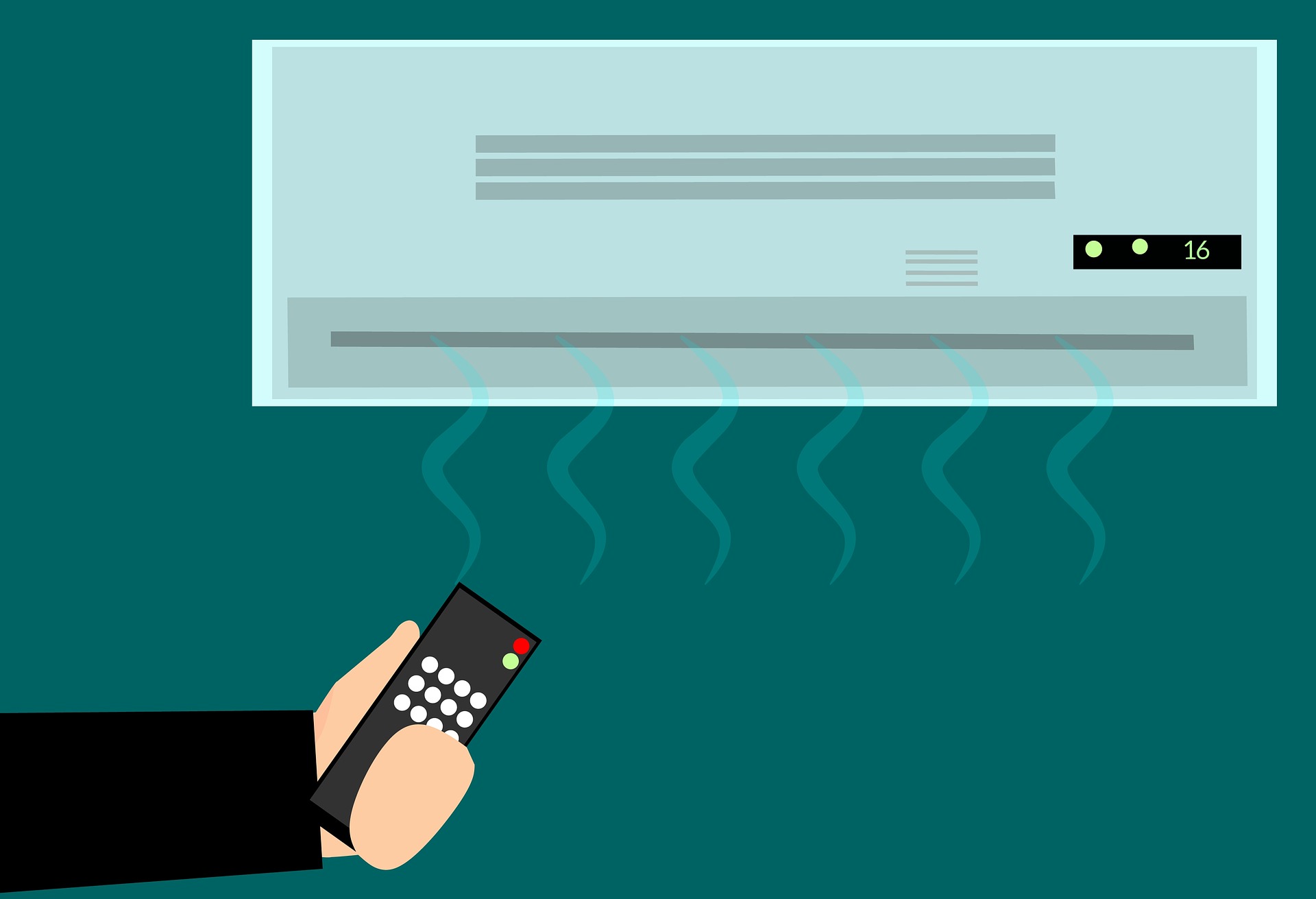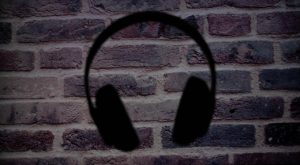Air conditioners are everywhere and they make our lives so comfortable. However, a lot of times we notice them making different sounds. These sounds can be troublesome and often impact our mental peace. They also make us wonder if our air conditioner is okay or needs repair or service.
Air conditioners make different sounds for multiple reasons. A lot of these noises are a result of normal functioning of the air conditioner. Other reasons could be loose components, issues with the compressor, motor, furnace, dirt accumulation, or even gas leakage. Some of these noises may be stopped by checking the air vents for blockage, or simply cleaning the air filters. However, professional help may be needed in some cases.
Thus, it is necessary to note any unwanted noise coming out of the AC and get it fixed at the earliest.
What are the symptoms of a bad AC compressor?
A compressor is a significant part that must work in proper condition. The various problems that symptoms that signal an issue with the compressor are as follows:
- Grinding and squealing noises: The compressor of the AC has many internal parts and bearings that are used for turning. If any bearing of the compressor fails or wears out, it will produce different sorts of sounds. Also, if any internal part of the compressor stops working or causes a problem, it will create noises. A damaged bearing will lead to a high-pitched squealing or grinding sound, and a seized bearing will produce a grinding noise.
- Vibrations: If the compressor is not in a good condition, the air conditioner will vibrate a lot when the air conditioner is turned on. Sometimes air conditioners vibrate the entire time when they are on.
- Less Air Flow: Less air comes out of the compressor if it is not in good shape.
- Inefficient cooling: If normally your room feels cool at say, 24 degrees and now, it is not feeling as cool even at 22, it could be due to a faulty compressor.
- Blowing hot air: It is a sign that the compressor has failed to work when AC starts to blow hot air. It will not regulate the refrigerant flow and, the AC system will not cool the cabin.
- The compressor’s clutch fails to work: The clutch allows the system to perform its work by transmitting the engine power, which results in helping the compressor to turn on when it is needed. However, a problematic compressor clutch will not move. Thus, it is advisable when your compressor faces any of the issues; it is better to repair it for better working of your air conditioner.
- Increased Electricity Bills: If your electricity bills are higher than usual, it could be because of a faulty compressor.
- Overheated Condenser Unit: The condenser unit can get overly heated when the compressor is malfunctioning.
Why does my AC make noise when turned on?
There are a lot of things happening when you turn your AC on, so there may be different kinds of sounds. The two primary parts that are in play are Let us look at some of them.
- Air burst: The initial burst of air when you turn your AC on causes whooshing sounds. This is completely normal in most cases.
- Issue with capacitor: When your AC turns on, the capacitor is responsible to turn the motor on. If you hear multiple clicking noises on turning your AC on, and they seem to increase, there may be issues with the capacitor.
- Issue with handler belt: If you hear a screeching sound every time your turn your AC on, it normally indicates issues with air handler belt.
- Improper mounting: If the AC is not sitting on a strong and stable surface, it may start vibrating as soon as you turn it on.
- Compressor Issues: If there are any issues with the compressor, your AC may make loud humming noise when turned on.
- Pressure change: There is a rise in pressure in the compressor when the AC is turned on.
- Contraction and Expansion: The components of the air conditioner start contracting or expanding once the AC is turned on. This is a normal process
- Age: Yes, age of your air conditioner is a factor governing how much sound it will produce when turned on. Newer air conditioners will produce no to very little sound.

Why does my AC sound like a wind tunnel?
The air conditioner majorly sounds like a wind tunnel mostly due to:
- Accumulation of dust on air inlets.
- Clogged air passages due to any obstructing object.
- Obstruction in air passage caused due to other reasons.
The sound is mostly caused due to inlet air filters. An air conditioner has multiple pathways for air to flow inwards as well as outward. When a few or more of these pathways are blocked, a wind tunnel sound is produced. Normally, the outlet of air works well, and in this case, inlet is the cause of concern. You must first check the air filters present in the inlet unit for any dust accumulation or any other kind of blockages. The tunnel sound acts as a reminder to clean it for better functioning of the AC.
Why is my AC making a whooshing noise?
It is completely normal to hear slight whooshing noise from your AC. However, if the noise is louder than normal, it could be because of one of the following reasons:
- Leakage of Refrigerant: If the refrigerant leaks, it may enter the coil or other parts of the system. This may cause whooshing noise.
- Excessive airflow: The interior supply vents may produce this sound as air rushes through them. The sound indicates an excess volume of airflow moving through your ductwork. The extra air is due to the blockage at one or more vents.
- Improper swing: If your swing is disbalanced or misaligned, your air conditioner may make whooshing noise.
- Non-uniform airflow: If the flow of air is different across the length of the vent of the AC, it tends to make a whooshing sound. It could be due to blockage in any of the vents, causing the air to flow in a non-uniform fashion.
- Ice formation: The formation of ice on the evaporator’s coil may lead to non-uniform air flow. This can result in your air conditioner making a whooshing sound.
- Blower unit: Blower units tend to make whooshing sounds when there is some kind of obstruction or deformity in it. Whooshing sound, if produced by the blower, can be heard even when the compressor is off.
- Issue in the ducts: Any leakage in the ducts can create the whooshing sound. So if you are hearing whooshing sounds and you think your ducts may be old, and may have developed cracks, it is a good idea to get them checked.
- External obstruction: Sometimes obstruction around the vents of your AC may be obstructing the movement of air. This may result in your AC making whooshing noise.
Why is my AC making rattling noise?
Rattling noise from the AC may be disturbing and there may be many reasons for an air conditioner to make rattling noises:
- Faulty Bearings: There are bearing in the fans of your air conditioner. Sometimes there bearings may become loose, broken or rusty. Such bearings impact the smooth movement, leading to noise.
- Loose cover: The cover must be properly closed post installation. Sometimes it is not clipped in the right place. The cover remains loose and starts to move due to the vibrations in the air conditioner. This makes a sound similar to a rattle.
- Other Loose components: Sometimes the components are not fitted well together. Additionally, there may be some loose components that may be moving due to the vibrations caused in your air conditioner. These may also be hitting the external body of the unit, increasing the noise.
- Imbalance motor: If the motor is not balanced, the air conditioner may make rattling noise.
Why is my AC blowing so loud?
The main causes of the air conditioner blowing so loud can be:
- Loose screws and mounts
- Issues with the motor
- Obstructions in the fan’s movements.
- Another serious issue can be refrigerant leakage
- High pressure within the compressor.
Things to consider when the AC is blowing loud are as follows:
- It is important to note from where the sound is coming. Is it from the indoor unit or an outdoor unit?
- Then check if the noise is coming from the fan or the compressor.
- Ensure that the parts are not loose as the loose parts jump and cause such sound while AC is on.

Why is my split AC unit making noise?
The following are the reasons that tell you why your split AC is making noise:
- Faulty compressor
The problem in any internal part of the compressor can cause noises or unusual sounds in your air conditioner. Ensure to replace or repair it when any problem arises.
- Refrigerant leaks
The leaks can cause a problem with your air conditioner. It will lead to difficulty in cooling.
- Dirty air filter
The air filters accumulate dirt, and it starts causing the problem in the air conditioner by creating sounds that act as a reminder to clean the filter.
Thus, these all issues make noises in your air conditioner and, apart from them, any part in the air conditioner that is loose will cause a sound in your air conditioner.
Why is my AC unit making gurgling noise?
The following may be the reasons your split AC is making noise:
- Issue with drainage: If there is any kind o blockage in the drainage system, your air conditioner may be making gurgling noise.
- Internal leakages: Leakage in the refrigerant may cause gurgling sounds. If you are hearing gurgling sounds and your AC is not cooling, it is most likely caused due to a leakage in the rerigerant.
How do I get rid of the noise in my air conditioner?
The four ways to get rid of the noise from the air conditioner are as follows:
- Choose the location wisely
Try to get the thermal control system installed away from the rooms in which you work daily. The sounds that come from AC are amplified and may hamper your activities. Thus, it is advisable to choose the location carefully.
- Use noise blanket
Install a noise blanket around the compressor of your AC unit. Using a noise blanket will reduce the sound without affecting the performance or efficiency.
- Install noise barriers
Install air conditioner near things that help in absorbing the noise. Plant vegetation that acts as a buffer or blocks and limits the sound waves. The wood helps in absorbing the sound so, install it near a wooden door. Ensure that the noise barriers are taller than the unit to be effective.
- Look for loose wiring and screws
Anything that is not secured nicely may produce noise. Loose wiring may keep bumping into the neighboring parts and produce noise. Additionally, if screws are not tightened properly, your AC will produce more sound due to increased vibration.
- Regular AC maintenance
Proper service includes updating the unit, clearing the drains, cleaning or changing the filters from time to time. The benefit of regular maintenance is as follows:
- Noise reduction
- Improved air quality
- Efficient performance
- Longer lifespan of the appliance
- Energy

How do I quiet a noisy air compressor?
The six ways to quiet a noisy air compressor are as follows:
- Use rubber grommets on your air compressor
Rubber is a material known for absorbing sounds. It helps in minimizing the noise by reducing vibration. Place; them in between the air compressor and the surface where it is. If you place it correctly, it will reduce the sound but not remove it fully.
- Lubricate the bearings
Bearings cause friction and, if not maintained well, cause noise or cause metal decay so, you won’t use the compressor. Thus, lubricating the bearings will improve their friction that will reduce the noise. Choose a top-quality grease and apply it to the compressor.
- Place air intake outside
A compressor is like a vacuum that takes air inside so, try to place them outside, pass the hose and ensure to place them on heavy brackets.
- Sound padding on the walls
Placing soundproof things on the walls will reduce the noise. You can install sound padding on the walls to reduce the noise. Attach the padding on the wall near the compressor so that no sound echoes.
- Purchase a soundproof box for the air compressor
Ensure to buy the box according to the size of the compressor. This is one of the best solutions to reduce noise from air compressors.
- Cover the compressor with a soundproof blanket
Cover the whole compressor with a blanket. It will keep the sound inside it like a soundproof box.
Let us see the different types of noises that come from an air conditioner with its root cause and remediation, refer to the table below:
| SNo | TYPES OF NOISES COMING FROM AIR CONDITIONER | POSSIBLE ROOT CAUSES | REMEDIATION |
|---|---|---|---|
| 1 | Banging noise | a loose component inside the compressor like a rod, piston pin, and crankshaft. | Since the problem is in the internal part of the compressor, it is advisable to repair or replace the compressor |
| 2 | Clanging Noise | The indoor blower and the outdoor fan blades are out of balance. | Replace the whole compressor. |
| 3 | Bubbling/gurgling noise | It is due to a refrigerant leak. A gurgling sound means that your drain line is clogged. | Ensure, to clean the drain line or change the compressor to avoid leakage. |
| 4 | Screeching noise | This sound is because fan bearings are worn out. | Lubricate the bearings with grease or change the old bearings with the new ones. |
| 5 | Squealing noise | It means that the fan belt is worn out. | Replace the belt and attach a new fan belt. |
| 6 | Clicking noise | Normally due to an object obstructing the unit's fan. | Ensure to clean the parts of the air conditioner from time to time or buy a new compressor |
| 7 | Buzzing noise | This is due to an electrical problem in the AC like circuit breaker etc. | Make sure to bring this to the notice of the electrician and replace or repair it if required. |
| 8 | Humming noise | This indicates there are loose wires or a blower motor issue. | Ensure to tighten the loose parts of the air conditioner or the compressor. |
| 9 | Slamming noise | It is due to the closed damper, expanding and contracting ducts, and blower motor fan problem. | Clean the ducts or air filter and ensure to remove the dirt from it for the proper functioning of the air conditioner. |
| 10 | Whistling noise | It is a sign of low airflow caused due to dirty air filters, leaky ducts, etc. | Ensure to clean the air filter and keep it dirt-free. |
Final Words
Make sure you find out the noises before it gets too worse and remediate the unwanted air conditioning noises with the above-mentioned instructions. Anything that you have been hearing from the beginning and is not too loud is normally not a cause o concern. However, if you have been hearing increased noises, or some unfamiliar sounds, it is better to call for help.
Unwanted noise may also mean unwanted bills. If you do not want the damage to increase, or if you do not wish to pay a higher amount, it is a good idea to keep your AC off until professional help arrives.




